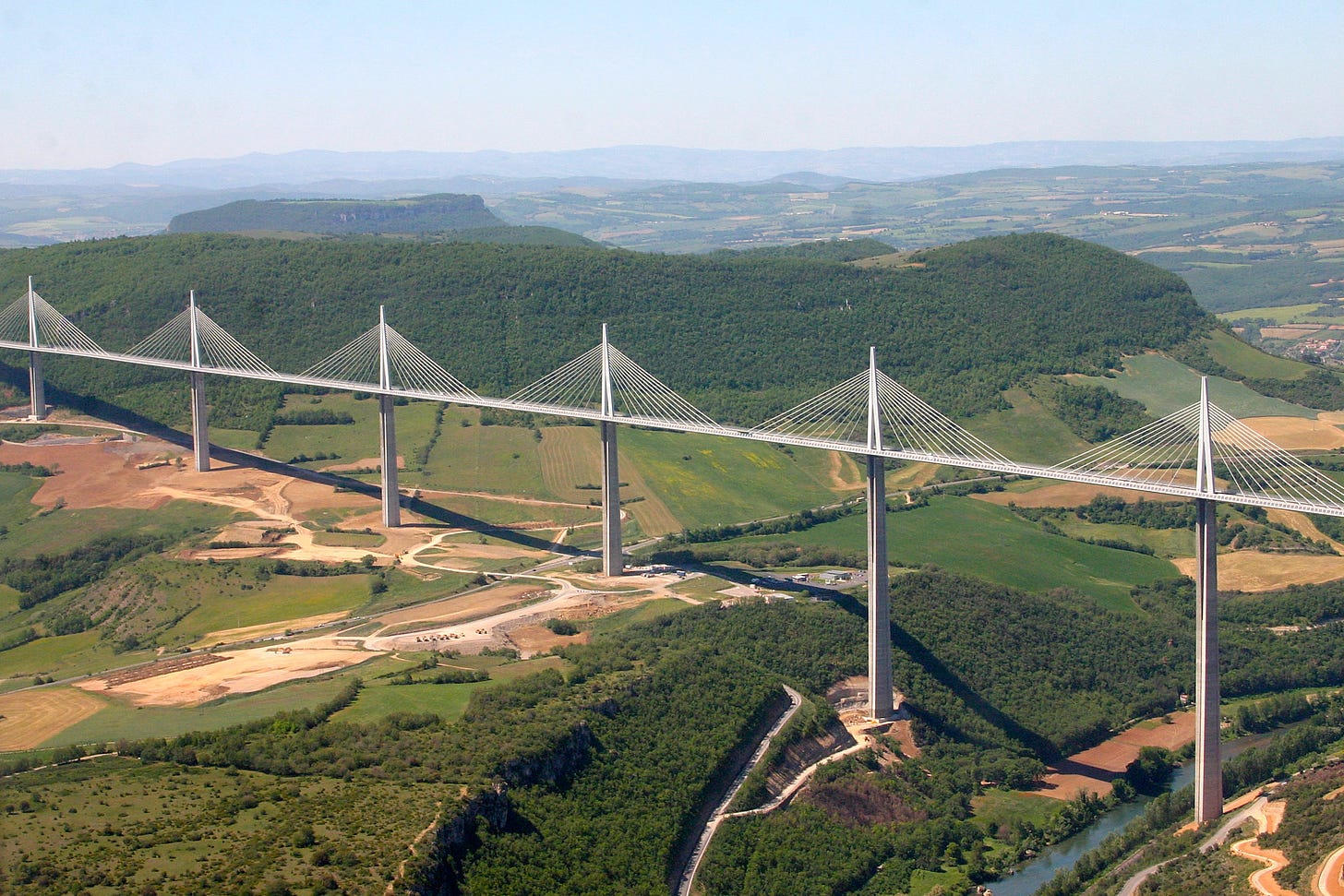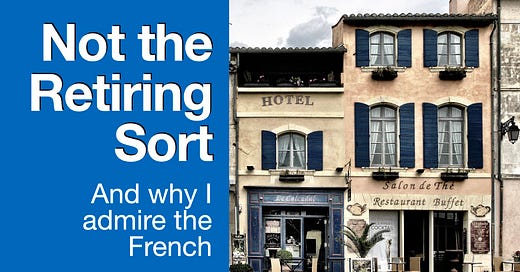What is ‘the good life’? It may not feel like it but we are getting richer and richer. We are creating better, more reliable labour-saving devices and more powerful drugs, so that work easier, pain is diminished and life is elongated.
Yet it seems that we are further away than ever when it comes to working out what life is actually for.
In John’s gospel, Jesus says that he came so that we can have life, and have it abundantly. (John 10:10) But what does that mean? How does work fit in to this?
I don’t think we Brits have quite figured this out. We may cling to the Protestant work ethic, but this seems to mean eating sandwiches at our desks, working through emails before our next meeting.
Moreover, this ‘hard working’ approach doesn’t appear to be effective. If you can stand being patronised from a secular internationalist perspective on a weekly basis, The Economist will provide frequent and convincing warnings that the British economy is still fairly large, but really not very productive. Things were okay from 1997 and 2007 when “British productivity growth was second only to America’s within the G7 group of countries.” Had we kept going at that rate, GDP per person would have been £6,700 higher than has turned out to be the case.1
The numbers from the economic eggheads don’t really mean very much, do they? But the policy wonks are fairly worried. And it chimes with the feeling that the British are eating sandwiches at their desk, working hard like the proverbial duck on the lake, paddling like mad underneath.
Meanwhile, in Paris
The French, however, are happy to take the time to eat that duck for lunch, and then make good use of the afternoon on a full stomach. Watch Muppets Most Wanted for an exemplary characterisation of the French work ethic by Ty Burrell. Whilst I find the stereotype funny, I actually admire the French for their attitude to work. This is a nation with its day-to-day priorities right.
And by priorities, I mean, hot food. Even in busy cosmopolitan Paris, you stop for at least an hour at lunchtime and go out for a hot meal. Many employers give out luncheon vouchers to their employees for use in local restaurants. The restaurants, by law, must have a two-course fixed price menu. This is a nation that takes food seriously. Why don’t we live like this in the UK? What’s stopping us?
Perhaps I admire this French approach to work because I find it so hard to emulate. Regular readers of this substack will know that I’m a busy person. I write this weekly article on top of other articles (like this one on Friends), produce two fortnightly podcasts (Sitcom Geeks and Cooper and Cary Have Words), and sit on the General Synod and the Archbishops’ Council, as well as help with Pathfinders at Church and run a housegroup – as well as the day job of being a scriptwriter. I am overly-cranked and therefore more prone to eat sandwiches at my desk.
As it happens, I don’t as I work from home. But I tend to push the end of my day later and later in order to get more done. I am in awe of my French counterpart who can simply get up from his desk and go for lunch. Every day. And at the end of the day, go home.
Downing Tools
However, there is a flipside to this. For the French worker, the lunchbreak is not enough. Not only does everything stop for a hot meal. All work should cease at the age of 62. That’s when you down tools and your state pension kicks in. Macron’s plans to raise that age to a mere 64 have been met with intense opposition and protests. The French are rather good at those. (Presumably, they plan them in their lunch breaks).
In 1970, on the day of retirement, a French man could expect to live about 13 years before dying, and a French woman about 15. Fifty years later, those numbers are either side of 25 years. So, one could begin work, say, as a graduate aged 21, work 41 years, retire and live another 25 years, which means one works for 41 years (with lunch breaks) out of an average of 87 years.2 That is less than half of one’s life in the workplace. That doesn’t seem very much.
But why work if you don’t have to? Are the French showing us how to live? After all, life is about more than drudgery, employment, productivity and paperwork. It’s about food, wine, art and conversation. Isn’t that what we’re working for? What is the good life?
Bridge-building. Literally.
The idea of retirement seems strange to me as a Christian because life is work. It’s not a punishment. It’s our purpose. The Christian vision of work is a noble one and begins in the beginning, in Genesis (which means ‘beginning’).
Adam and Eve were put into a garden, not to goof off and scoff the seeds and fruit in the longest lunch imaginable. Their job, our job, was to tend and improve the garden, taking it from glory to glory. That remains our function: work; service; productivity.
Work can be rewarding in itself when it’s all going well. That’s a God-given impulse. The French like to build beautiful bridges, and pride themselves on their civil engineering. And there is a lot there in which to take pride, so that your Citroen isn’t spluttering up and down hills in order to get from Avignon to Bordeaux.

But that bridge was a nightmare to build, subject to all kinds of frustrations and delays. Those lunchbreaks were needed. The Fall of Man and the subsequent curses caused our work to be frustrating. Thorns and thistles had to be cleared from the hillsides. Steel girders were put up with machinery, sure, but with a great deal of manual work, blood, sweat and tears. And then the Babel-effect meant that certain measurements and instructions were lost in translation, and part of the scheme had to be a process of redrafting, recutting and refitting.
A Time To Work
Work is frustrating. But that’s on us. There is a time to work. And a time to rest. That’s laid down in the beginning too. Six days to work, and one day to rest. Read on in the Old Testament and you’ll find all kinds of other feasts and holy seasons – marked by food, lunch, banquets and the drink of kings, wine.
Jesus endorses all of the above in John’s gospel when he arrives on the scene, providing wine, loaves and fish in comic abundance. In other gospels, he tells parables about banquets, implying this is where we are headed. (There aren’t any parables in John).
Relax, Daddio
So why don’t people like me want to rest? Why is the West overly cranked and determined to be more and more productive? It’s partly the glorious God-given, creation mandate. But it’s also partly gnawing fear that God will not provide.
We have conditioned ourselves to believe that life is a zero-sum game. If I have more, others have less. We need to work through lunch to keep up with the Joneses in this dog-eat-dog deathmatch over resources that will only be made more bitter and intense with climate change.
Nope. That is not the God we find in the gospel of John. Jesus brings abundance. He doesn’t just feed the twelve with five loaves and two fish. He feeds five thousand people. The last miracle in John is a miraculous catch of fish that is so large it is noteworthy that the nets didn’t break. And how much wine does Jesus create? I explain in my show, which is available to stream from 12th May:
Subscribe to stay in the know. It’s free:





